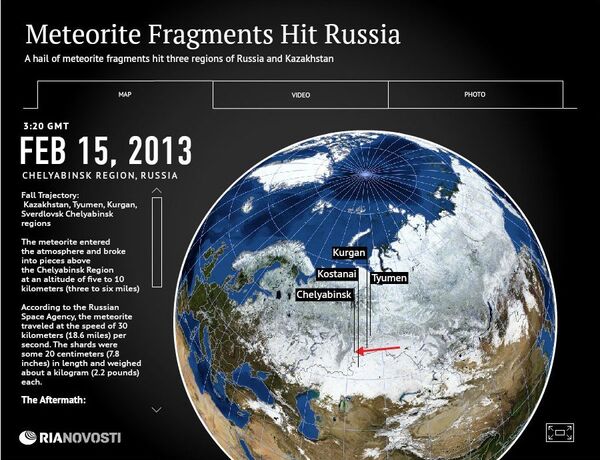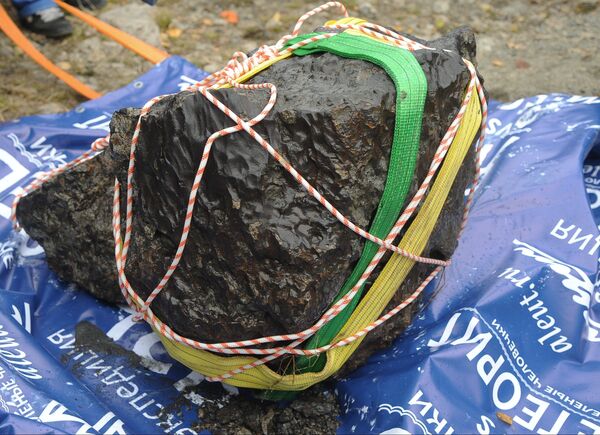MOSCOW, October 16 (RIA Novosti) – A rock thought to be the biggest fragment so far of a meteorite that exploded over Russia’s Urals region in February was lifted from the bottom of a lake Wednesday in a massive recovery effort broadcast live by Russian TV.
“This is the daddy of previously recovered pieces… See this black crust? This is a visitor from space. … The crust is very thick, [with traces of] smelting, rust and dents,” Sergei Zamozdra, a scientist at Chelyabinsk State University, told reporters at the scene.
The fragment lifted from the bed of Chebarkul Lake in the Chelyabinsk Region weighed about 600 kilograms (1,323 pounds) before it cracked into three pieces during the recovery operation.
“This fragment was quite big, and, apparently while being pulled, it cracked and split into three parts. However, the two biggest fragments weigh 570 kilograms [1,256 pounds] in total,” Chelyabinsk Region Governor Mikhail Yurevich said in a statement.
The exact weight of the three pieces combined is unknown, because the scales broke when the needle reached 570 kilograms.
After being carefully studied by scientists, the biggest fragment will be put on display at a local museum.
“It’s a typical meteorite, judging by its appearance – [I’m] 105 percent [sure]. There's no doubt about that, [it has] a thick melted crust, while dents reveal typical structures of the Chelyabinsk meteorite,” Viktor Grokhovsky, a member of the Russian Academy of Sciences’ meteorite commission who examined some previously recovered fragments, told RIA Novosti.
The meteorite, which exploded above the Ural Mountains city of Chelyabinsk on February 15, is estimated to have weighed about 10,000 metric tons and measured about 17 meters (about 56 feet) in diameter. The blast left about 1,500 people injured, mostly by glass shattered by the shockwave.
An operation to recover fragments of the meteorite from the lakebed began in late September. Divers fished out 13 rocks, weighing up to 11 kilograms (24 pounds). Scientists have confirmed the extraterrestrial origin of 11 of the rocks.
“The operation cost us one million and 650 [thousand] rubles [$51,000], approximately,” Yurevich said. “The work will stop now; we will leave the smaller fragments for tourists, who might try to retrieve them on their own.”
Updated with a scientist's opinion in Para 7



